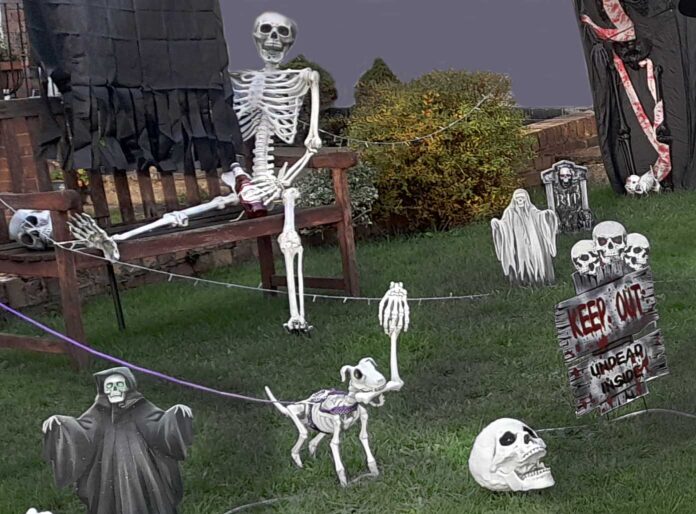We are approaching the end of October and the time when many people celebrate Hallowe’en. But not everyone. It’s banned in Iran and Saudi Arabia, and discouraged in some other countries.
It was originally a pagan, Celtic festival called ‘Samain’, when people believed that the boundary between the living and the dead was blurred. Hence the ghosts and spooky nature of the celebrations. It is also associated with witches, and the power of evil. But the name itself has church origins. “All Hallows’ Day” (or “All Saints’ Day”) is 1st November, when some churches remember the dead. “Hallowe’en” is literally the eve of All Hallows’ Day. So Hallowe’en is a merging of Christian and pagan celebrations. (Unfortunately, this is true of several festivals in the “church calendar”.)
Whether something is harmless or not is determined by what God says about it. Hallowe’en is not mentioned in the Bible. However, here are some Bible principles that are relevant to the subject.
First of all, the dead are unconscious and simply cannot come back to haunt people (Isaiah 38:18-19). The boundary between the living and the dead cannot be blurred.
‘For in death there is no remembrance of you…’ (Psalm 6:5).
Second, God does not accept mixing true worship with other practices. The Jews were reprimanded severely for mixing their religious practices (given by God) with the pagan rituals of the surrounding nations (2 Kings 17:6-18; Ezekiel 8:14-18). Just because it makes a celebration more appealing to us does not mean that God approves.
Third, the Bible explicitly condemns any form of witchcraft or related activities. Punishment under the Law of Moses was most severe (Leviticus 20:27, Deuteronomy 18:10-12).
Finally, “saints” is simply a word the Bible uses for true believers – whether dead or alive. They are people who are dedicated to God, loved by Him, called by Him to ‘be saints’, and destined for eternal life (Psalm 85:8-9, Romans 1:7). They are designated as such by God, and not by any church. It is not necessary for them to have done miracles or signs. The common notion of saints as especially virtuous dead people is not to be found in the Bible.
So, is Hallowe’en harmless? Perhaps the question is whether it is harmless to dabble (even in fun) with beliefs and practices that directly conflict with God’s truth.
Of course, we do well to reflect on the “hallows” – that is, the saints, the faithful people who are described in the Bible. We should be aspiring to be one. We can do this at any time, not just one day a year.
But the most significant death and – fundamentally important – resurrection is that of Jesus Christ. He was raised to life, not as a ghost but with a tangible body (Luke 24:36-43). He is now immortal. Believers are most certainly commanded to remember this sacrificial death of the one who was dead but lives for ever (Romans 6:9-10, 1 Corinthians 11:23-26).
Anna Hart


